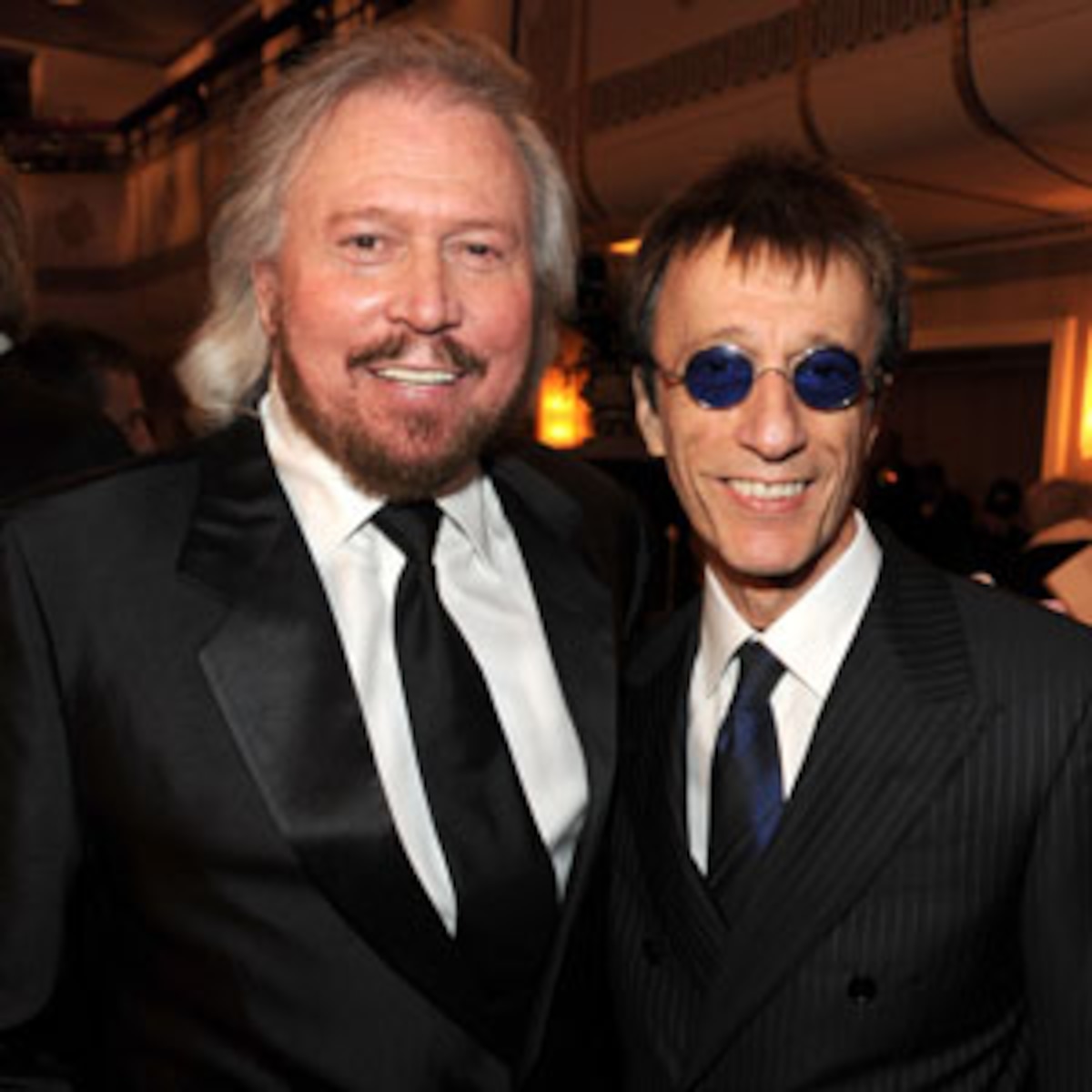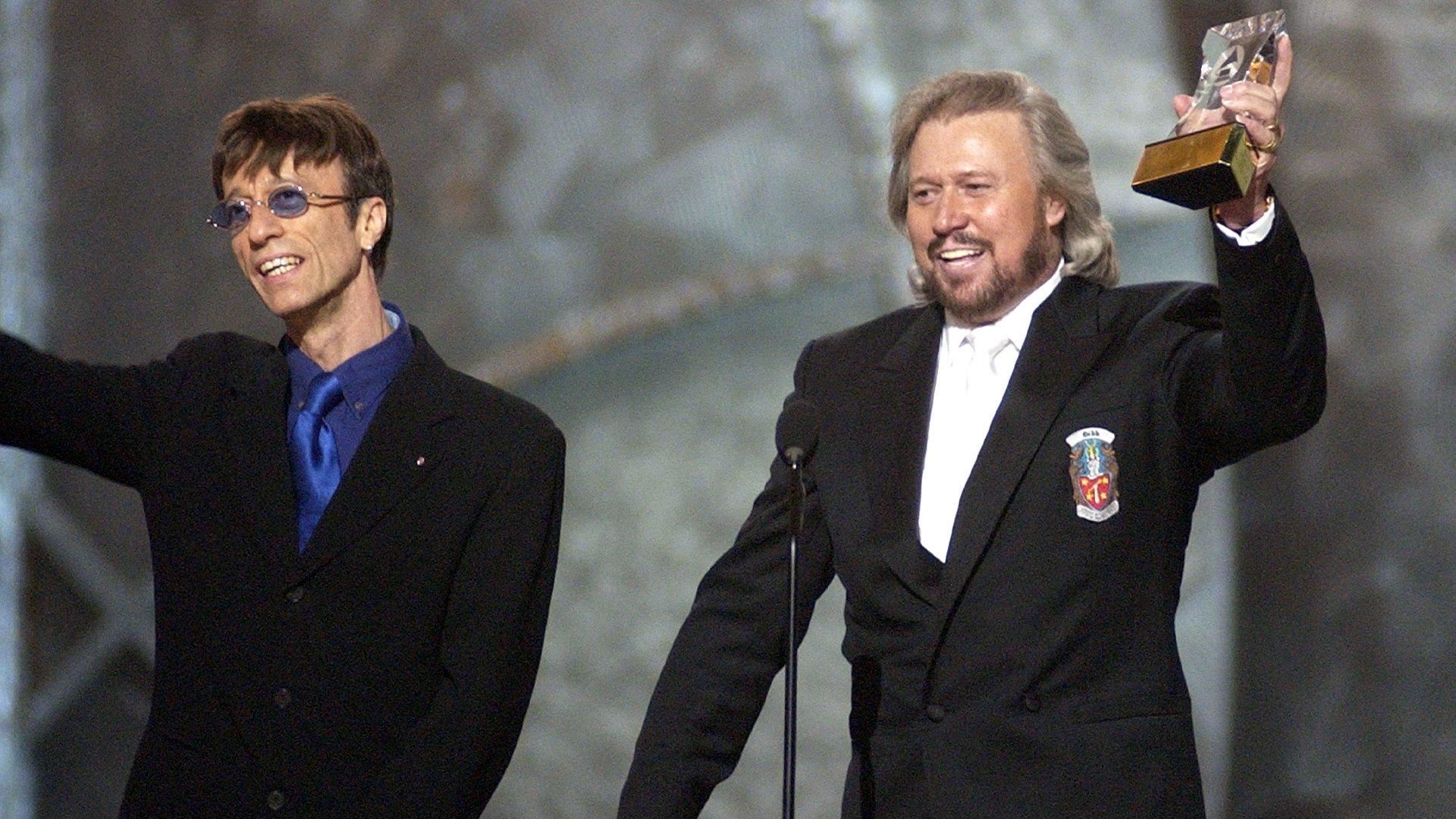When it comes to the Bee Gees, few musical groups have ever matched their ability to evolve and endure across decades. At the heart of that success lies a question that fans and critics alike have debated for years: which brother’s voice truly defined the Bee Gees’ sound—Barry or Robin Gibb? Both brought something profoundly unique to the trio, and their contrasting vocal styles often intertwined to create a signature blend that was instantly recognizable around the world.
Barry Gibb’s voice is the one most associated with the Bee Gees’ disco-era dominance in the late 1970s. His falsetto, smooth yet piercing, became the defining element of hits like “Stayin’ Alive,” “Night Fever,” and “You Should Be Dancing.” With this shift in vocal style, Barry not only transformed the band’s sound but helped redefine pop music itself during the disco explosion.

Robin Gibb, on the other hand, brought a haunting, vibrato-laced voice that conveyed raw emotion and melancholy. Songs like “I Started a Joke” and “Massachusetts” owe their emotional power largely to Robin’s tender, almost ghostly delivery. Long before the Bee Gees embraced disco, Robin was the soulful heartbeat of their early ballads and baroque pop masterpieces.
There’s no denying that Barry’s falsetto became the Bee Gees’ commercial calling card in the late 1970s. When disco ruled the airwaves, his vocals soared above dancefloors and soundtracked an entire generation. It was Barry’s falsetto that propelled Saturday Night Fever into music history, making him the vocal emblem of an era.
Yet, for those who fell in love with the Bee Gees before disco, Robin’s voice is often the one they remember most vividly. His ability to make vulnerability sound majestic added a timeless quality to many of the group’s early UK hits. In moments of introspection and lyrical sorrow, it was Robin who connected most deeply with listeners’ hearts.
The dynamic between Barry and Robin was not always harmonious, and their creative tensions sometimes spilled into public view. Robin famously left the group briefly in 1969 over disputes about musical direction and vocal dominance. His return, however, only reinforced how essential both voices were to the Bee Gees’ artistic chemistry.

What made the Bee Gees so remarkable was how their individual strengths complemented each other. Barry’s falsetto brought the fire and rhythm, while Robin’s quivering tenor added soul and texture. When joined by Maurice’s harmonies, the trio created a sound that was far greater than the sum of its parts.
Even in their collaborative writing, each brother’s voice shaped the character of a song. Barry often led on tracks driven by groove and sensual energy, while Robin’s leads were reserved for ballads or introspective numbers. Their alternating vocal roles gave the Bee Gees an emotional and musical versatility rare in pop music.
Critically speaking, Barry may get more attention due to the Bee Gees’ massive late-career resurgence. His role as frontman during their disco era often overshadows Robin’s quieter but equally vital contributions. However, many devoted fans argue that Robin’s voice carries the soul of the band’s original vision.

From a production standpoint, Barry took on a more dominant role in the studio as the group evolved, especially during their Miami years. His production instincts and vocal layering techniques shaped their records into lush sonic landscapes. Still, he often reserved special spots for Robin’s unmistakable tone, recognizing its unique emotional impact.
In live performances, audiences often lit up when Barry’s falsetto kicked in, but they listened with reverence when Robin sang lead. The contrast between the two voices allowed the Bee Gees to craft dynamic and emotionally varied setlists. It was a testament to how essential both were to the group’s identity and appeal.
After Robin’s death in 2012, Barry has often spoken about the void left by his brother’s absence. Despite his solo success, he frequently admits that the Bee Gees were never just about one voice. Their magic came from the harmony, the tension, and the contrast between the brothers’ vocals.
In truth, trying to crown either Barry or Robin as the “defining” voice of the Bee Gees may miss the point entirely. What made their sound immortal was the way their voices danced around each other, sometimes clashing, more often blending in perfect harmony. The Bee Gees weren’t just led by one voice—they were defined by the union of many.
So, was it Barry’s falsetto or Robin’s trembling tenor that truly defined the Bee Gees? The answer might be that it was both—each representing different eras, emotions, and energies within their remarkable catalog. Together, they gave the Bee Gees a dual identity: one voice soaring to the stars, the other echoing deep within the soul.